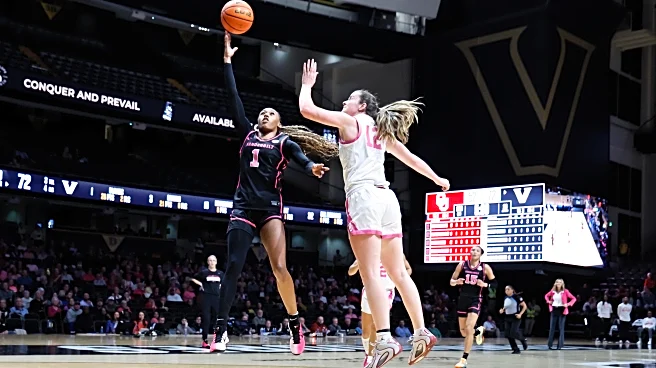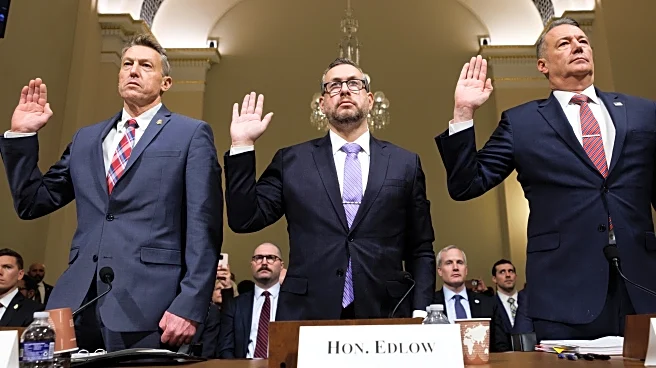What's Happening?
A recent study by Empower has revealed significant changes in consumer spending habits related to gifts and tips, driven by inflation and tariffs. The study indicates that Americans are experiencing 'gift fatigue' and adopting 'no gift' policies as prices rise. The 'going rate' for various gifts has been quantified, with birthday gifts averaging $56 for adults and $83 for children, while wedding gifts average $85. Tipping habits have also been affected, with median tips for takeout dining at 16% and food delivery at 11%. The study suggests that these spending patterns can serve as economic indicators, reflecting broader economic pressures. Empower's head of consumer insights, Rebecca Rickert, notes that generosity is intertwined with economic conditions, offering a unique perspective on consumer behavior.
Why It's Important?
The findings from Empower's study underscore the broader economic impact of inflation on consumer behavior. As gift prices rise, consumers are adjusting their spending habits, which could have implications for retail and service industries reliant on holiday and event-related sales. The shift towards 'no gift' policies and reduced tipping may affect businesses that depend on discretionary spending. Additionally, the study highlights generational differences in spending, with more than half of respondents believing their generation spends more than others. This could influence marketing strategies and consumer engagement efforts. Understanding these trends is crucial for businesses and policymakers as they navigate the challenges posed by inflation and changing consumer expectations.
What's Next?
As inflation continues to impact consumer spending, businesses may need to adapt their pricing strategies and marketing approaches to align with changing consumer preferences. Retailers might focus on offering more affordable or personalized gift options to cater to budget-conscious shoppers. Service industries could explore ways to incentivize tipping or enhance customer experiences to maintain revenue streams. Policymakers may consider these consumer trends when formulating economic policies aimed at stabilizing inflation and supporting consumer spending. The ongoing monitoring of these dynamics will be essential for stakeholders seeking to mitigate the effects of inflation on the economy.
Beyond the Headlines
The study's insights into consumer spending habits reveal deeper cultural shifts in how Americans perceive gift-giving and tipping. The emphasis on 'gift fatigue' and 'no gift' policies suggests a growing awareness of the economic pressures faced by individuals, potentially leading to more sustainable and thoughtful consumption practices. This cultural shift could influence social norms around generosity and etiquette, prompting discussions on the value of material gifts versus experiences and time. As consumers become more conscious of their spending, businesses may need to innovate to meet evolving expectations and foster meaningful connections with their customers.











